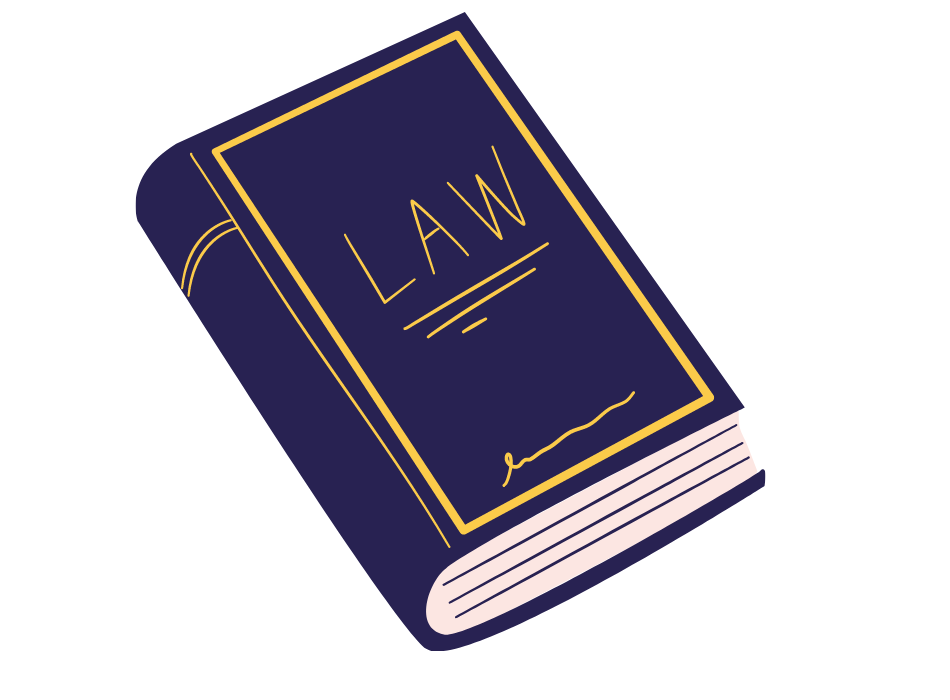DOCTRINE OF NECESSITY AND ITS EXCEPTIONS
Introduction
“Nemo in propria causa judex, esse debet” is a Latin proverb that says no one should judge in his own case. It is one of the principles of natural law. The aforementioned phrase also implies that when given the power and responsibility to make decisions, one must act fairly and impartially without prejudice. Bias or prejudice is defined as any factor that affects an individual’s judgment of the status quo or against its problems. As a result, the issue cannot be resolved on the basis of evidence alone. Thus, anti-prejudice law includes principles of natural law. The foregoing guidelines exclude parties who disproportionately influence a judge’s decision in a particular case. However, the concept of necessity counts as an exception to the anti-prejudice rule. We will learn more about the concept of importance by reading this article.
Understanding the Doctrine of necessity
The main legal considerations whenever a court has to make a decision are principles of natural law. However, there is an exception to one of the principles of natural law—an anti-discrimination rule—and that is the concept of necessity. Statutory authorities may act in the following ways as a result of consideration of needs:
- To perform certain actions that must be performed at a specific time. Such acts would not otherwise be considered within the purview of the law in an everyday legal context.
- Invoke and apply the theory of necessity only where there is no determining authority to make a decision in a matter.
If he or she is granted permission to grant a biased trial or to dismiss the case outright, the act of bias will take precedence, although the judge’s bias may influence the decision. The only requirement here is that such deciding authority must fully resolve the issue at hand.
History of Doctrine of Necessity and its Exceptions
The theory of necessity derives from the teachings of medieval jurist Henry de Bracton. “What is otherwise not lawful is made lawful by necessity,” he said. Later, the contentious case of Federation of Pakistan v. Maulvi Tamizuddin Khan (1955) was heard by Pakistan’s judiciary.
In this case, Chief Justice of Pakistan Muhammad Munir formally approved the Governor-General’s exercise of emergency powers beyond the constitution. Moreover, the then Chief Justice of Pakistan referred to the aforementioned case of Henry de Bracton, thus applying the concept of necessity. In the case of Union of Pakistan v. Govt. Maulvi Tamizuddin Khan (1955) opened the door for other Commonwealth countries to implement the doctrine of necessity.
The criterion for applying this concept, however, is that justice should not merely be done, but appear to be done. Consequently, the principle of necessity departs from the notion of nemo judex in causa sua. In India, the landmark case of Gullapalli Nageshwara Rao v. Govt. The APSRTC (1958) is noteworthy for its application of the concept of necessity. Finally, in Election Commission of India v. Govt. Dr. A.S. The case Subramanian Swamy (1996) changed the doctrine to the doctrine of absolute necessity. In this, the court held that the concept of necessity should be applied only in absolutely necessary circumstances.
Exceptions To the Doctrine of Necessity
Consideration of necessity protects judges from bias. However, the concept does not entitle it to be used as an explanation of bias under any circumstances. This suggests that the consideration of necessity disqualifies judges using biases to make decisions. However, there are exceptions where such biased judgments are based. The following are the exceptions:
- There is no availability of another competent person for arbitration.
- In the absence of whom (the adjudicator) a quorum cannot be formed.
- There is no possibility of establishing another competent tribunal.
If the doctrine of necessity is raised in any judicial dispute, it is more likely to satisfy the ineffective party. At the same time, if consideration of necessity were completely abandoned, the adjudication would be suspended, and the parties would not be deprived of any justice.
Before adopting the doctrine of necessity, it must be carefully examined to see if the doctrine is indeed necessary to make a decision. This enhances and strengthens the ability to make decisions. The critical opinion also allows appellate courts to challenge and judicially test employee conduct. However, when justifying an administrative action, it must be remembered that such an administrative action cannot be justified unless preconceptions are capable of influencing the bias in the judge’s reasoning
Doctrine of Necessity and its Exceptions under the Indian Penal Code (IPC)
The principle of necessity can be found in Indian criminal law. Provisions for ‘general exception’ are found in Sections 76 to 106 of Chapter IV of the Indian Penal Code, 1860. Persons are exempt from criminal conviction if any of the offenses enumerated in Chapter IV are committed under the exceptions or circumstances enumerated. The person will not be punished. Section 81 of the IPC adds the concept of necessity to those general exemptions.
Section 81 of the IPC deals with acts likely to cause harm but done without any criminal intent. This action must also be taken in good faith to prevent or prevent further harm to the person or property. However, the risks associated with such actions will be balanced against the nature and needs of each case.
In dealing with a harmful situation, an individual is given two options that lead to a harmful outcome. In such a case, in order to avoid or prevent further harm, extreme necessity compels the person to commit what would be considered a crime. Therefore, the person is required to choose between two evils and must choose the lesser evil correctly principle of necessity.
Section 81 Of Indian Penal Code (IPC)
Acts that are likely to cause harm but are carried out without criminal intent and to prevent further harm —
Nothing constitutes a crime simply because it is done with the knowledge that it is likely to cause injury. If it is done without any criminal intent to cause harm and in good faith for the purpose of preventing or avoiding additional harm to person or property, according to Section 80 of the Code.
Explanation- It is a question of fact in such a case whether the harm to be prevented or avoided was of such a nature and so imminent as to justify or excuse the risk of doing the act with the knowledge that it was likely to cause harm.
- Example – A, the captain of a steam vessel, finds himself in such a situation that, before he can stop his vessel, he must inevitably run down boat B, with twenty or thirty passengers on board, unless he changes his course, and that, by changing his course, he must incur the risk of running down a boat C, with only two passengers on board, which he may possibly clear. In this case, if A changes his direction without intending to sink boat C and in good faith to avoid endangering the passengers on boat B. He is not guilty of an offense, even if he runs down boat C by doing something he knew would have that effect. If it is determined that the danger he meant to avoid was such that he was justified in taking the risk of running down C.
Some Case Laws Based on Doctrine of Necessity and its Exceptions
Regina v. Dudley and Stephens (1884)
The defendants in this case were Thomas Dudley and Edwin Stephens. Due to a shipwreck, the defendants and a cabin boy called Richard Parker were stranded in a boat without food or water. Later, on the eighteenth day, when the three of them had gone seven days without food and five days without drink. Then, Dudley proposed to Stephen that one of them be executed in order to save the others. As a result, they determined that it would be wiser to kill Parker in order to spare their own lives. Dudley and Stephens both killed Parker on the twentieth day and feast on his flesh for four days. They were later rescued by a ship, and they were charged with Richard’s murder.
The Court ruled that killing an innocent person to save one’s own life did not justify murder. Even, if it was conducted under great duress of starvation. Following that, the accused were sentenced to death, although this was eventually reduced to six months in prison.
United States v. Holmes (1842)
On one occasion, an American vessel called the ‘William Brown,’ carrying 65 passengers and 17 crew members, collided with an iceberg and sank quickly. As a result, the longboat became stranded in the rough sea. To keep the boat from sinking, the crewmen threw some of the passengers overboard. Later, when one of the crew members’ cases came up for trial, the court ruled that such cases of necessity might be deemed a defense against the allegation of criminal homicide. However, the court stated that those who are sacrificed must be chosen equitably based on the number of individuals present.
Election Commission of India v. Dr. Subramaniam Swamy (1996)
In this instance, it was determined that if the Chief Election Commission has the potential for bias, their involvement is not required, therefore the idea of need is not relevant. However, a suitable line of action was established for them, in which they may convene a meeting and then withdraw, leaving the choice to the other members of the commission. Only when there is a disagreement between them will the idea of necessity be used. As a result, in this instance, the concept of necessity was renamed the doctrine of absolute necessity. Hence, establishing that the theory can only be used in cases of absolute need.
Tata Cellular v. the Union of India (1994)
In this situation, the Government of India invited all mobile operators to set up shop in the four metro cities of Chennai, Bombay, Calcutta, and Delhi. The Telecom Regulatory Authority of India (TRAI), which included a Director-General of Telecommunication, was supposed to review and evaluate the tenders. At the conclusion of the evaluation procedure, the tender of the Director-General’s son was chosen. The Supreme Court did not condone the violation of ‘Nemo judex in causa sua’ in this case because no tender could be selected and no fair appraisal could be done without the Director-General of Communication. There was no alternative and therefore the decision was not worth striking. In this case, the Supreme Court liberally applied the doctrine of necessity.
Conclusion – Doctrine of Necessity and its Exceptions
In conclusion, the principle of necessity is an exception to the principle of natural justice. “nemo in propria causa judex esse debet”, advocates impartiality in decision-making. This view respects common practice considered unlawful or prejudicial in the particular circumstances that justify the choice and urgent need to act in the interest of justice. Throughout history, the doctrine has been applied in various legal contexts in India and other countries. Therefore, which have grown in scale and use over time. While important considerations can provide needed flexibility in exceptional circumstances, they also present inherent challenges.
Care and discretion should be used to avoid abuse or torture. Judges and officials should carefully analyze the situation to determine whether the necessary conditions do exist before applying this doctrine. The doctrine of necessity should be applied only in the absence of any other competent third party or forum. Therefore, should be applied only in cases of absolute necessity
In criminal law, the Indian Penal Code incorporates the necessity doctrine as a “general exception”. It permits acts injurious to persons but done in good faith to prevent or avoid further harm to person or property. While the principle of necessity provides a practical way to deal with situations of urgency and exigency. Moreover, it should not be seen as a safeguard against biased decisions or actions where compliance with the principles of justice, fairness, and justice should always be the primary objective. Therefore, the doctrine should be applied sparingly and never used as an excuse.
To know about the Doctrine of Estoppel in Contract – Click Here




Leave feedback about this